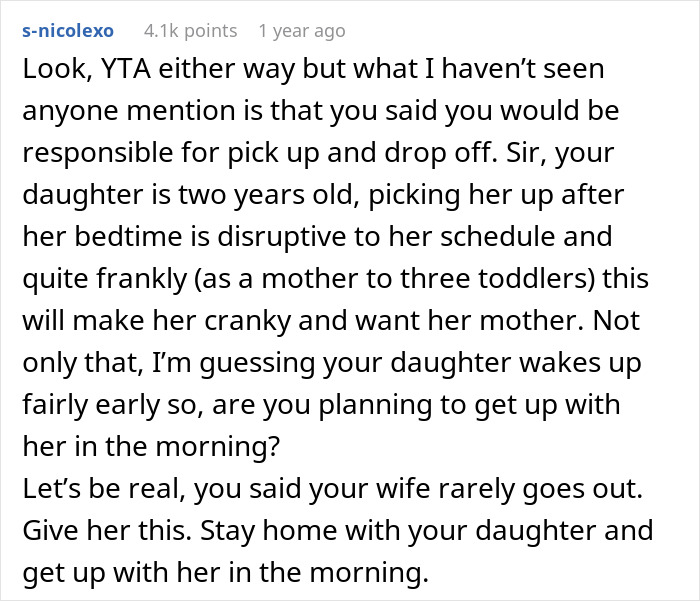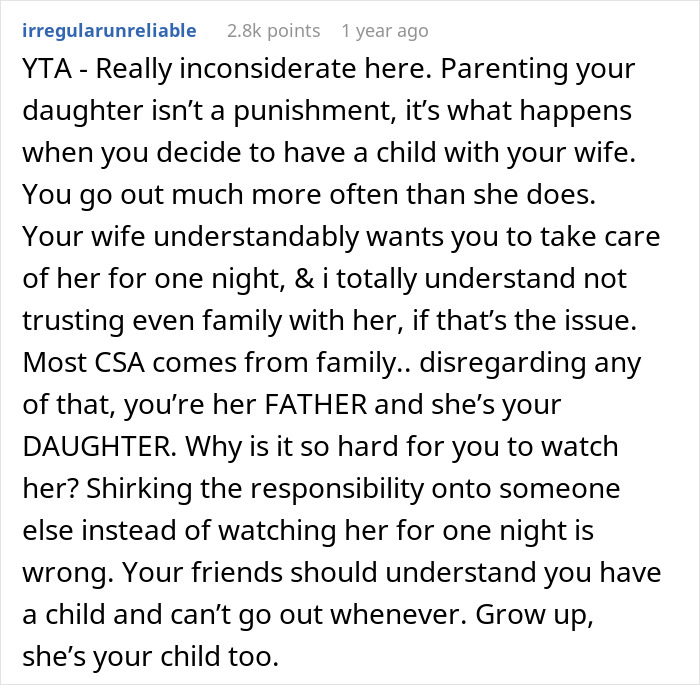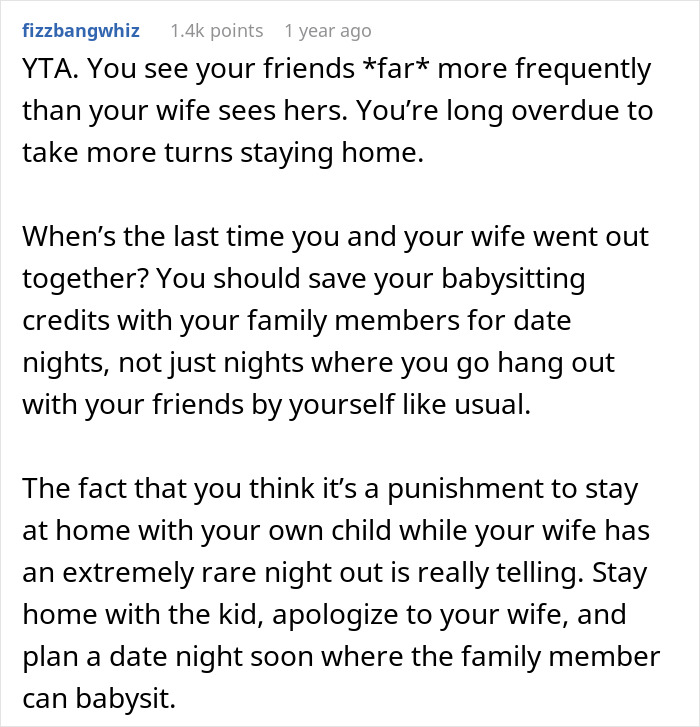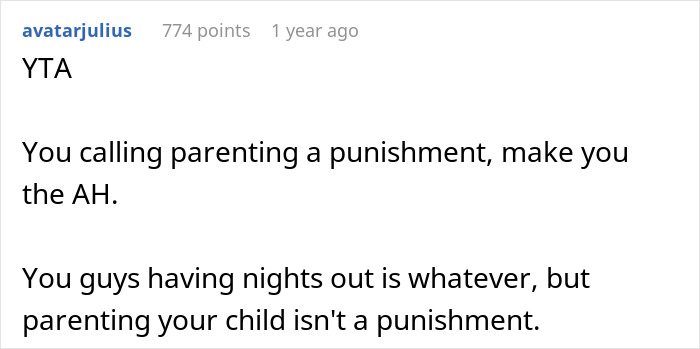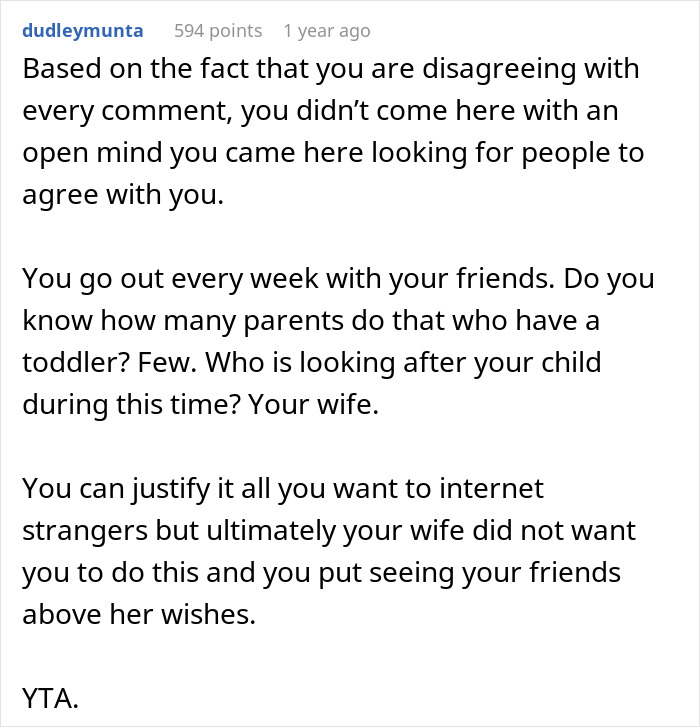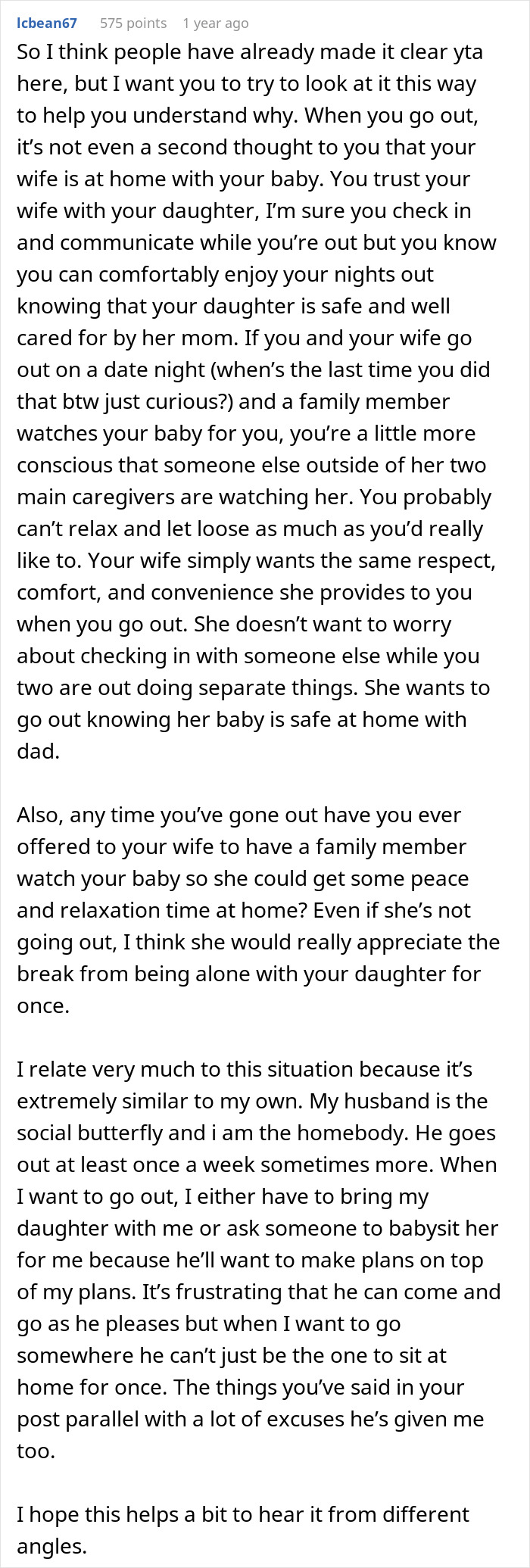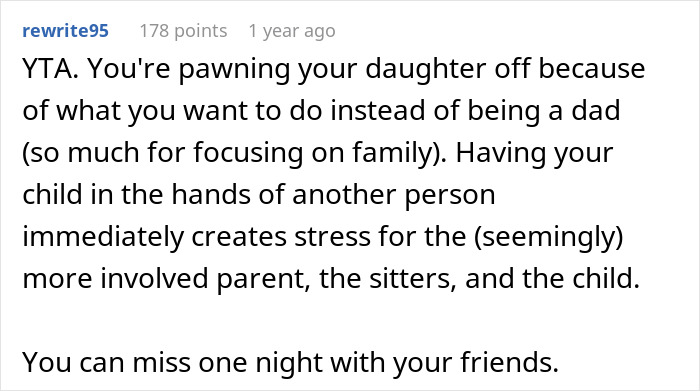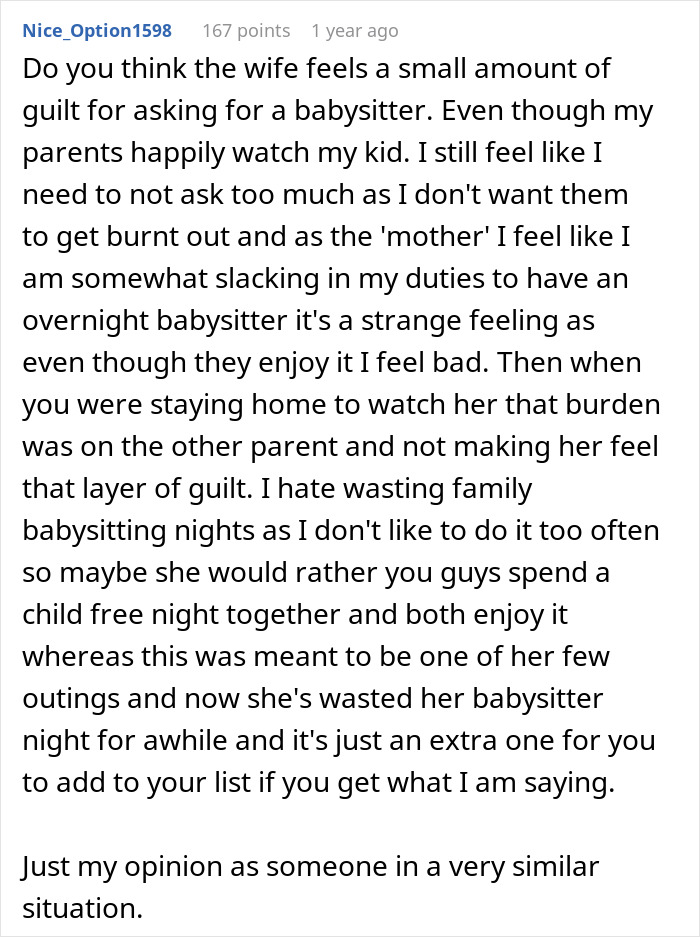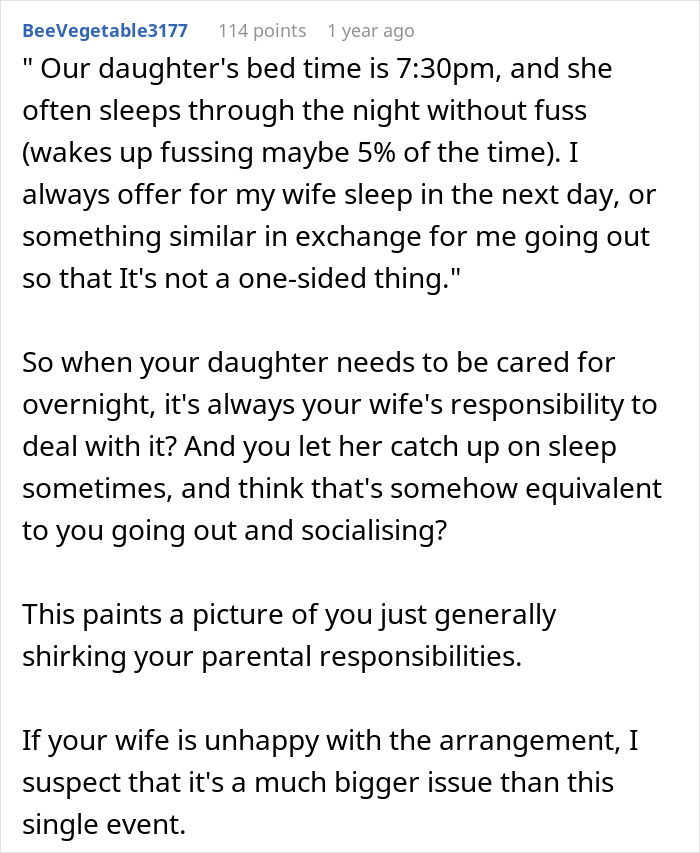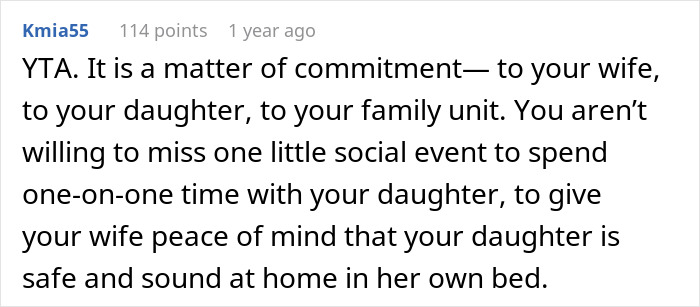Parenting is rarely a perfect 50/50 split, no matter how much we’d like it to be. Still, it comes with the shared responsibility of showing up for your child—even if it means doing things differently and giving up certain comforts.
So when this dad agreed to stay home with his 2-year-old daughter to let his wife enjoy a rare night out with friends, it seemed like a fair and supportive move. But then he got invited to a friend’s birthday party on the same day, and instead of backing out, he arranged for a trusted family member to babysit.
His wife wasn’t happy. She felt this was the one occasion he should’ve stayed home.
Unsure who was right, he turned to the internet for advice.
Read on for the full story.
The woman had arranged a rare night out, and her husband was on board to watch their toddler

Image credits: drazenphoto (not the actual photo)
But when he suddenly announced he’d be going to a friend’s birthday instead, it sparked an argument neither of them saw coming


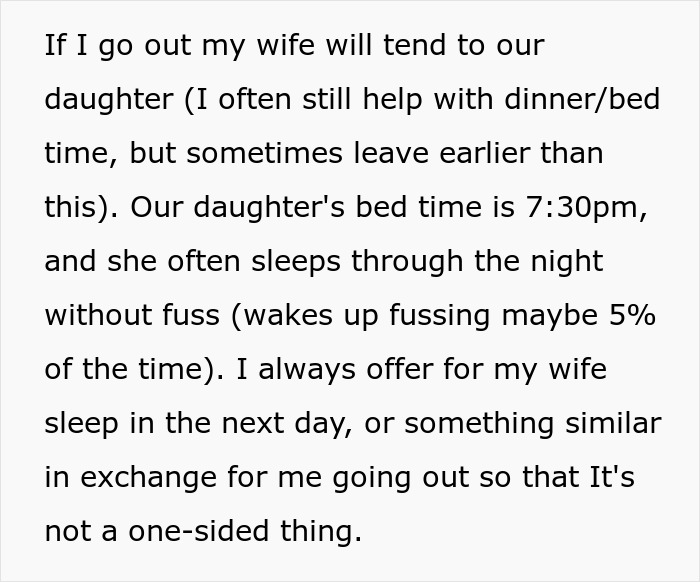



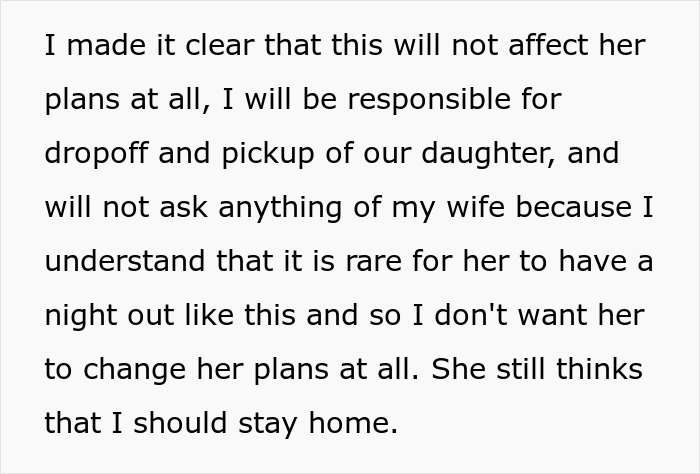

Image credits: Rawpixel (not the actual photo)



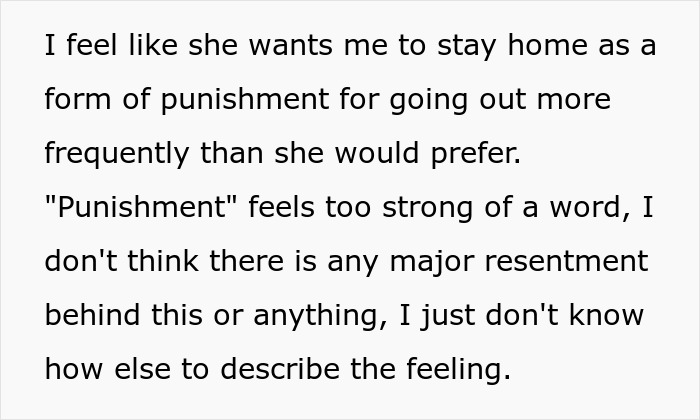



Image credits: YuriArcursPeopleimages (not the actual photo)



Image credits: lucksterluke16
Mothers tend to worry more than fathers about what could happen to their children
On paper, the way the dad handled the situation in this story might look like the perfect compromise. Both parents get to go out, and the child is left in trusted hands. Win-win.
But in reality, things are rarely that simple. There are many underlying dynamics, often invisible even to those involved, that can complicate what seems like a straightforward plan. For many women, especially those who take on the role of primary caregiver, parenting also includes carrying the bulk of the emotional labor, even if the distribution of tasks looks balanced on the surface.
It’s possible, for instance, that the mom in this story wasn’t just reacting to the babysitting arrangement itself, but to the mental load that comes with it. As research shows, moms are generally more concerned about a wide range of issues related to their children’s well-being.
According to the Pew Research Center, nearly half of mothers (46%) say they are extremely or very worried their children will struggle with anxiety or depression, compared to 32% of fathers. Mothers are also significantly more likely than fathers to say they’re worried about their kids being bullied, kidnapped, beaten up, or even shot. Concerns about substance use and legal trouble are also more common among moms.
Besides emotional worry, the invisible work of parenting adds up. One study found that mothers handle 71% of all household mental load tasks—things like planning meals, arranging childcare, scheduling appointments, and keeping the home running smoothly.
Even in daily practical tasks, the division is skewed. Moms take on 79% of regular chores like cleaning and childcare, compared to just 37% for dads. Fathers tend to take on more episodic tasks like managing finances or home repairs, but even there, mothers are still heavily involved, leading to duplicated effort rather than equal sharing.
Interestingly, the same study found that while many men believe they’re contributing significantly, they often overestimate their share. Fathers are more likely to say that household responsibilities are equally split, while mothers typically disagree.
So when the dad in this story arranged for a family member to watch their daughter, it may have seemed reasonable to him. But as one commenter pointed out, the mom was likely still carrying the weight of concern, wondering how her daughter was eating, sleeping, getting there and back, or what might happen in case of an emergency. All of that adds to the mental load and makes it harder for her to truly relax and enjoy her rare night off.
The takeaway? If we want to truly support mothers, we need to look beyond surface-level solutions. That means asking what they need, listening without judgment, and making space for honest, thoughtful communication.
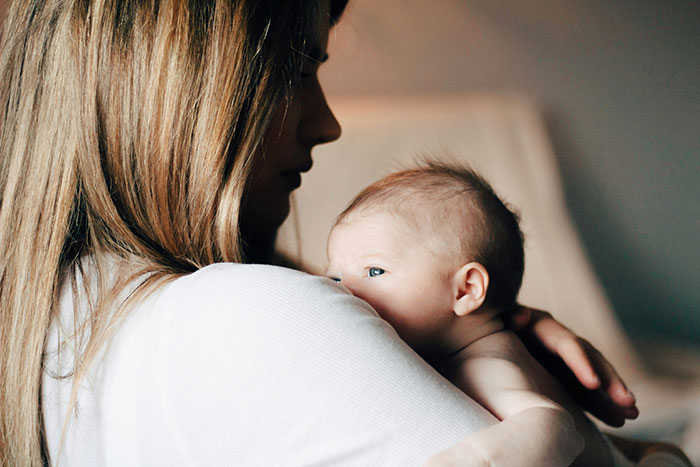
Image credits: Hollie Santos (not the actual photo)
Some readers felt the wife let her emotions get the best of her

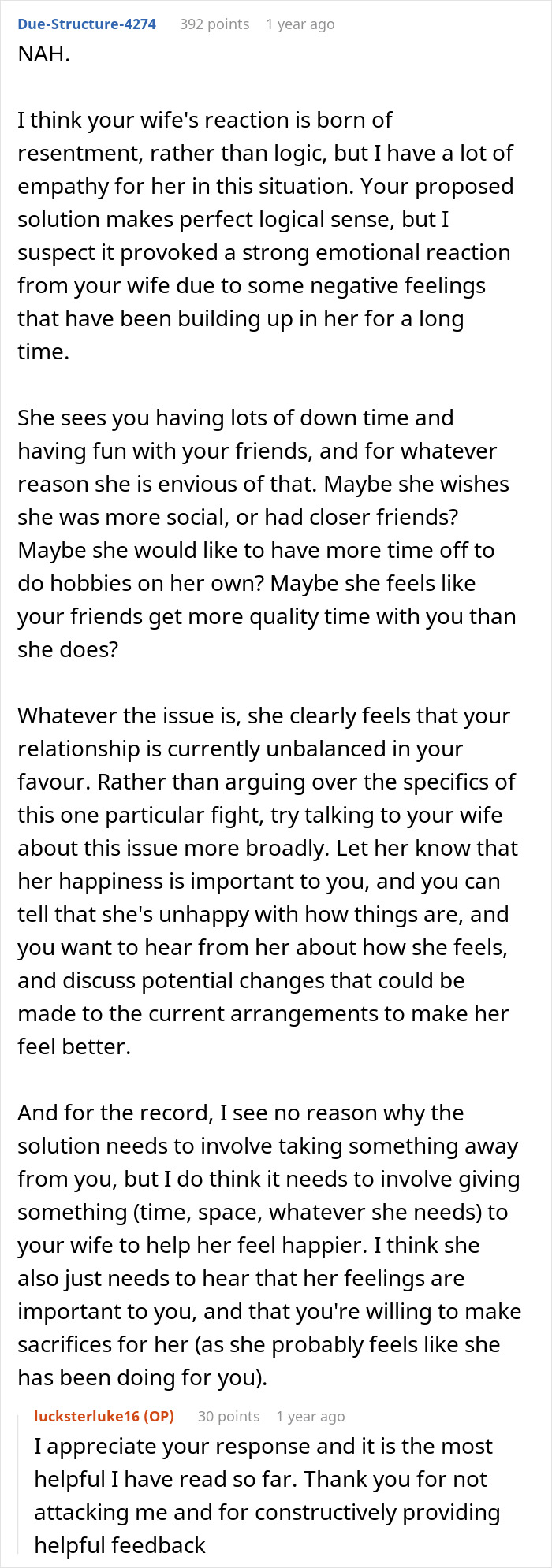
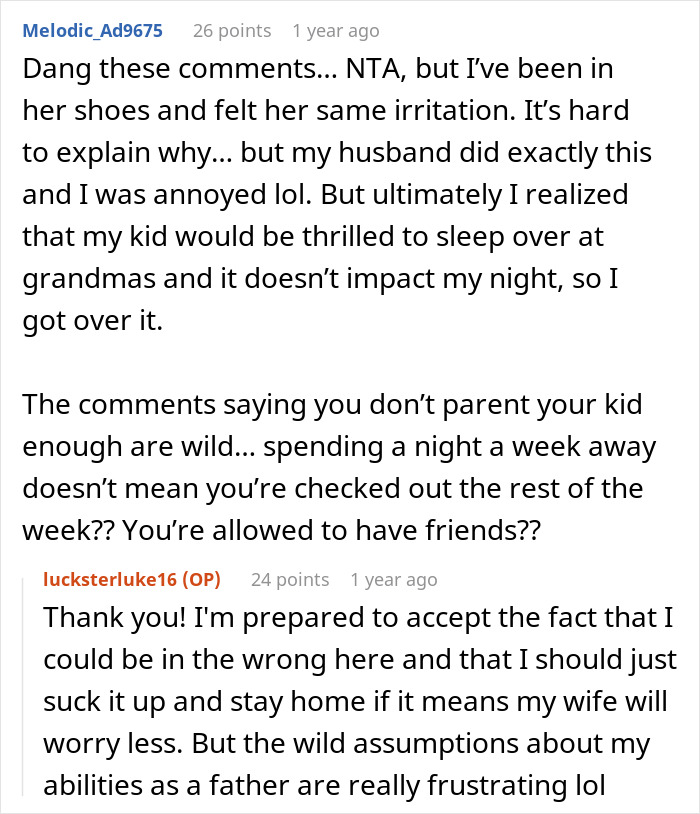
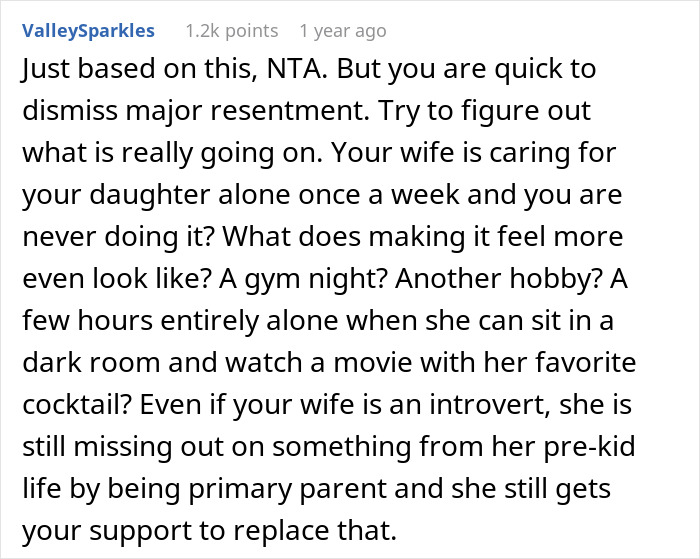
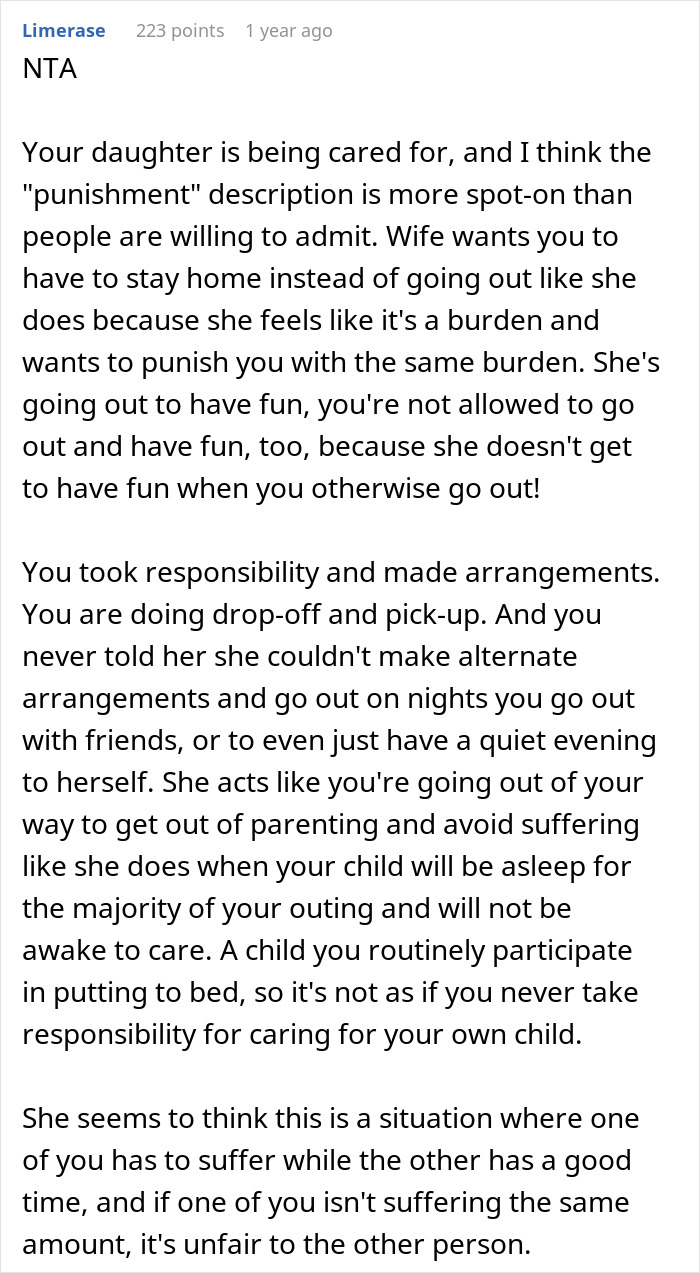


While others believed her frustration was valid and that her husband should’ve put her plans first




